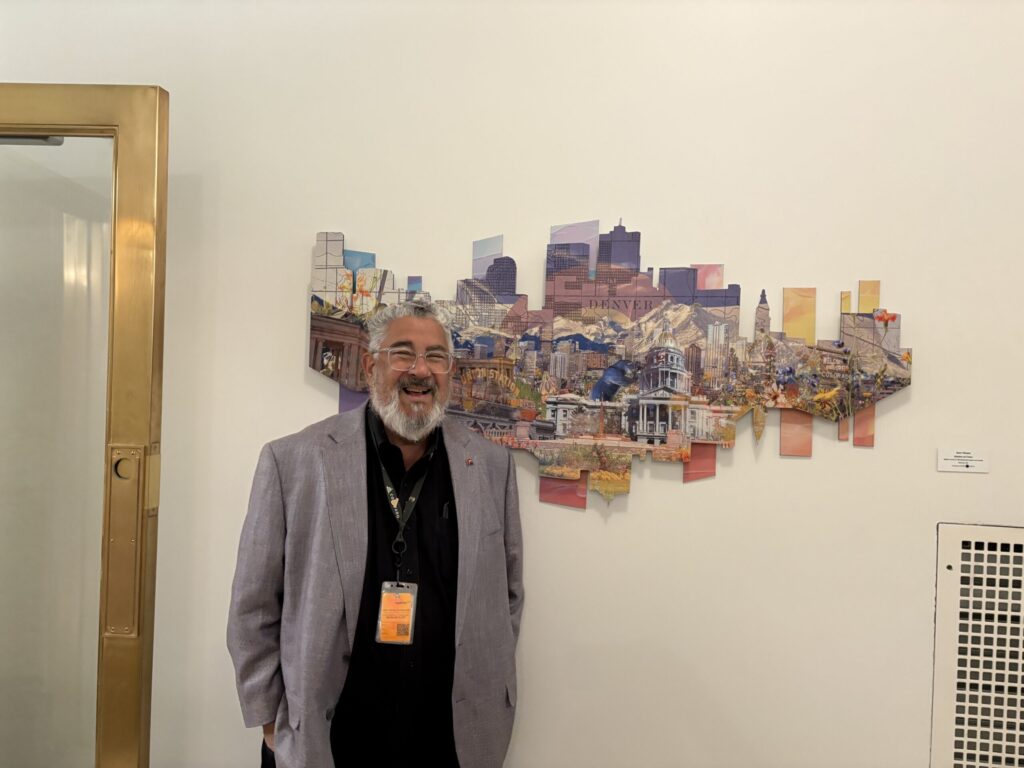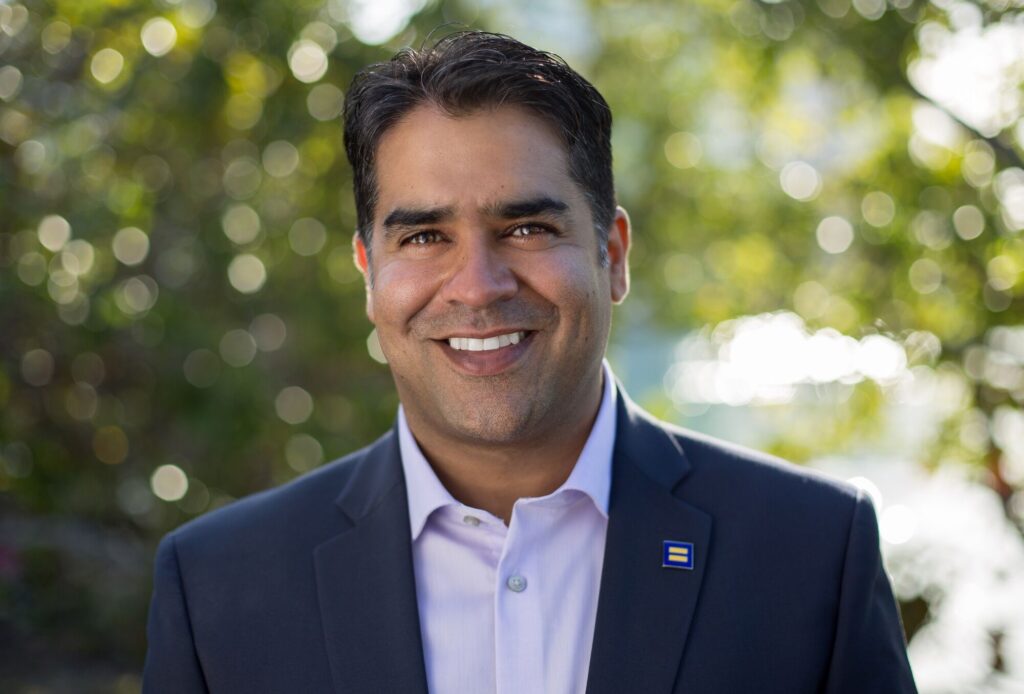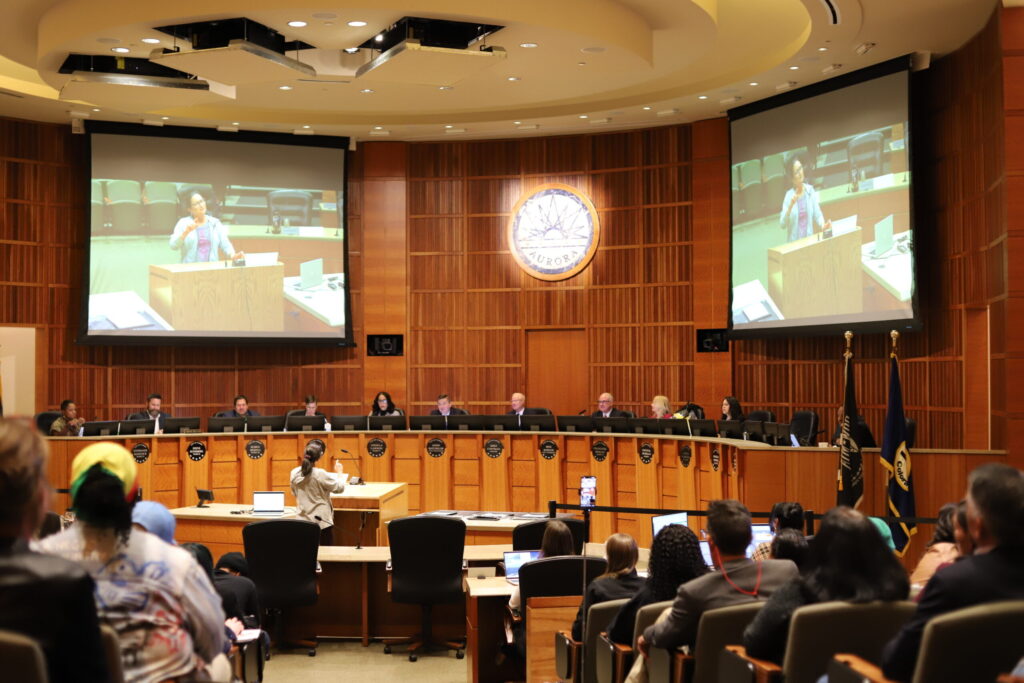CU’s Benson complies uneasily with Democratic probe into climate professor
University of Colorado officials have turned over information – albeit grudgingly – on professor Roger Pielke Jr. to U.S. House Democrats on what he calls a “witch hunt” into the funding of certain climate scientists.
CU President Bruce Benson complied last week with a request by U.S. Rep. Raul Grijalva, D-Ariz., for Pielke’s salary, external funding sources and financial-disclosure forms as part of a probe into whether professors who deviate from the so-called “consensus” view on climate change receive fossil-fuel funding.
At the same time, Benson bristled at the implication that the CU Boulder environmental studies professor had somehow slanted his research to advance a political agenda.
“We are aware of nothing to suggest that Professor Pielke’s research and conclusions were influenced by improper considerations,” said the March 23 letter signed by Benson and CU Boulder chancellor Philip DiStefano.
“As we provide this response, we would like to emphasize that Professor Pielke is a highly regarded researcher and that we fully support the principles of academic freedom,” the letter said. “Consistent with the principles of academic freedom, Professor Pielke’s research is subject to rigorous peer review, which helps advance and build scientific knowledge in the field.”
Grijalva, the ranking Democrat on the House Natural Resources Committee, has come under intense criticism from Republicans and scientific groups, led by the American Meteorological Society, for his investigation into the funding sources of seven professors.
He has defended the probe by noting that the professors have all testified before Congress on climate-change issues. All seven have also challenged the environmental movement’s assertion that elevated carbon dioxide levels in the atmosphere have triggered extreme weather events.
“I am hopeful that disclosure of a few key pieces of information will establish the impartiality of climate research and policy recommendations published in your institution’s name and assist me and my colleagues in making better law,” said Grijalva in his Feb. 24 letter to Benson.
Two of the professors under investigation have a CU Boulder connection: Pielke, a professor in the Center for Science and Technology Policy Research, and Steven F. Hayward, who now teaches at Pepperdine University but spent the 2013-14 academic year as CU’s first Visiting Scholar in Conservative Thought and Policy.
The House Democrats’ investigation comes amid a searing political debate over the funding of academics in the so-called “alarmist” or “warmist” camp versus those in the “denier” or “skeptics” camp. Senate Republicans produced a report last year tying liberal foundations to the funding of climate-change advocacy groups.
Grijalva launched his probe following a New York Times report on the conservative Koch Foundation’s funding of Dr. Wei-Hock “Willie” Soon at the Harvard-Smithsonian Center for Astrophysics. Soon failed to disclose his financial connection before testifying in the past before Congress, said Grijalva, although Soon has argued that his research is not influenced by his financial support.
In his letter, Grijalva said he was concerned about “potential conflicts of interest and failure to disclose corporate funding sources in academic climate research.”
He said that Pielke’s 2013 Senate testimony “featured the claim, often repeated, that it is ‘incorrect to associate the increasing costs of disasters with the emission of greenhouses gases,'” adding that White House science adviser John Holdren disagrees with Pielke.
“My colleagues and I cannot perform our duties if research or testimony provided to us is influenced by undisclosed financial relationships,” said Grijalva.
Of the seven professors named, Pielke has been the most outspoken, condemning the investigation as a McCarthyist “witch hunt” in a post on his Climate Fix blog headlined, “I Am Under ‘Investigation.'”
“I have no funding, declared or undeclared, with any fossil fuel company or interest,” said Pielke in the Feb. 25 post. “I never have. Representative Grijalva knows this too, because when I have testified before the US Congress, I have disclosed my funding and possible conflicts of interest. So I know with complete certainty that this investigation is a politically-motivated ‘witch hunt’ designed to intimidate me (and others) and to smear my name.”
Pielke also argues that he’s hardly a poster child for climate-change “denial.” While he disagrees with catastrophic global-warming scenarios, he agrees that “human-caused climate change is real” and supports a carbon tax as well as the EPA’s proposed carbon regulations on coal-fired plants.
Still, that’s enough to make him controversial. He parted ways with the statistics blog FiveThirtyEight last year after his article, “Disasters Cost More Than Ever – But Not Because of Climate Change,” touched off a social-media campaign to have him fired, described by Discover columnist Keith Kloor as an “ugly pile-on.”
Other climate scientists have weighed in on the Grijalva probe by stressing that funding sources should be transparent while raising concerns about the politics. In 2010, the Republican Attorney General of Virginia came under similar criticism when he launched a probe into the funding of then-UVA climate professor Michael Mann.
“It was wrong when it was done by Republicans and right-wing think tanks, and it’s wrong when it’s done by Democrats and left-wing think tanks,” University of Washington climate professor Eric Steig told National Public Radio.
At least two other universities – Arizona State University and the University of Delaware – have responded to Grijalva’s request. Arizona State’s response was similar to that of CU: ASU President Michael M. Crow provided information on professor Robert Balling’s external funding, salary and financial disclosure forms, but not his testimony or communications, saying ASU did not keep those records.
But the University of Delaware refused to turn over any documentation specific to the funding of professor David Legates, saying such information was “protected by academic freedom,” according to a March 16 letter signed by the president and provost.
CU spokesman Ryan Huff noted that all of the information provided on Pielke was public information.
“Had we received a Colorado Open Records Act request from a member of the public for the identical information, our response would have been the same,” Huff said.
Meanwhile, Pielke has since announced that he will leave the field of climate research. A member of the advisory board for the Breakthrough Institute, which advocates technological solutions for environmental dilemmas, Pielke said in a March 1 blog post he plans to continue focusing on “science, innovation and politics.”
He added that he made his decision long before the launch of the Grijalva investigation.
“I have had my say and as a scholar I am ready to move on to more fertile fields of study,” Pielke said.













